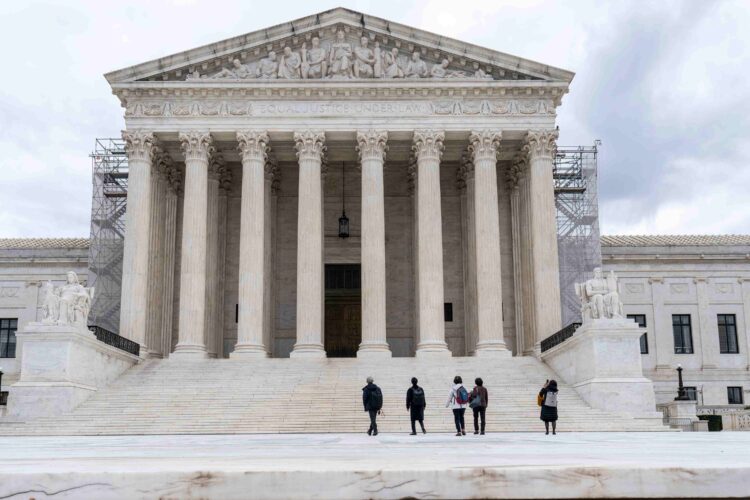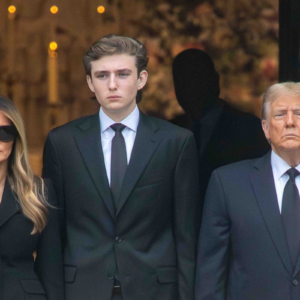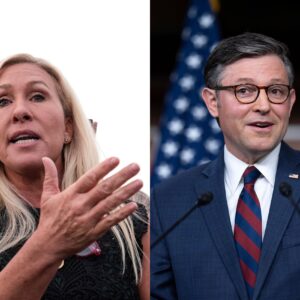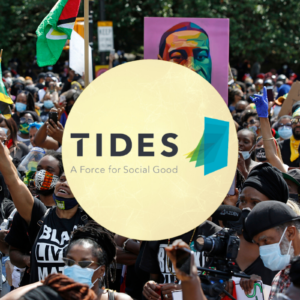The United States Supreme Court began hearing arguments on Monday in a case challenging the Biden administration’s ability to coordinate with social media platforms to censor so-called “misinformation.”
The outcome of Murthy v. Missouri, filed in a lower court by the attorneys general of Missouri and Louisiana last summer, will determine whether the federal government violated First Amendment free speech protections by urging platforms to suppress questions about the efficacy of the COVID-19 vaccines, election fraud in 2020, and the Hunter Biden laptop story.
In July 2023, US District Judge Terry A. Doughty sided with the state attorneys general, ruling that the government’s actions to suppress online misinformation “likely violate the Free Speech Clause.” Doughty then issued a temporary injunction blocking multiple federal agencies and officials—including several of President Biden’s cabinet members and White House Press Secretary Karine Jean-Pierre—from communicating with social media companies.
Google, Meta, and Twitter were all named in the lawsuit.
At the time, Doughty described the administration’s efforts as “similar to an Orwellian ‘Ministry of Truth,” constituting “the most massive attack against free speech in United States’ history.”
Learn the benefits of becoming a Valuetainment Member and subscribe today!
While the case is still being litigated in lower courts, the Supreme Court agreed to review the injunction late last year, scheduling arguments for the 2024 term. The injunction has been lifted in the intervening time.
When the federal government appealed the decision, Missouri Attorney General Andrew Bailey argued that it was “absolutely critical that that injunction be affirmed as we move into this election cycle in order to continue to build the wall of separation between tech and state, in order to protect our election and integrity as part of our First Amendment right to free speech.”
“In other words, if you look at the speech that was suppressed, censored at the federal government’s demand, it was exclusively conservative speech,” Bailey continued.
Biden’s Department of Justice, on the other hand, has argued that the communication ban would prevent government officials from “working with social media companies on initiatives to prevent grave harm to the American people and our democratic processes,” which would lead to “irreparable harm.”
The DOJ further argues that the states do not have Article III standing as they have not proved direct injury at the hands of the government.
The High Court will now be tasked with establishing the “constitutional line between coercion and persuasion.” According to sources within the court, many of the justices seemed wary of upholding the injunction, raising concerns about undermining the administration’s ability to contact social media platforms about important issues or security threats.
Justice Amy Coney Barrett, for example, was reportedly surprised when Louisiana Solicitor General J. Benjamin Aguiñaga questioned whether the FBI should be able to address doxxing incidents. “Do you know how often the FBI makes those calls?” she asked.
Justice Ketanji Brown Jackson continued: “Some might say that the government actually has a duty to take steps to protect the citizens of this country, and you seem to be suggesting that that duty cannot manifest itself in the government encouraging or even pressuring platforms to take down harmful information.”
Connor Walcott is a staff writer for Valuetainment.com. Follow Connor on X and look for him on VT’s “The Unusual Suspects.”



















Add comment